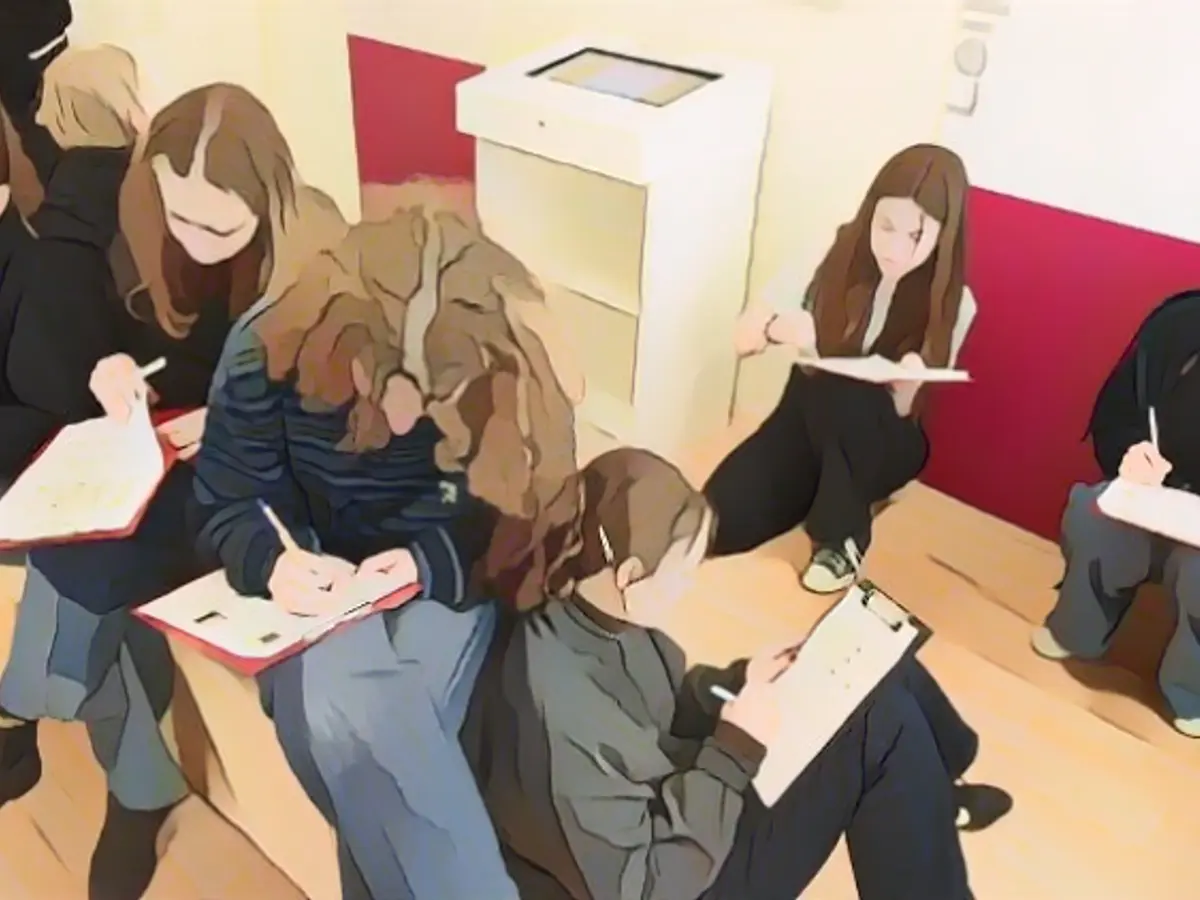PISA study shows corona crisis - results worse than ever
Every three years, the PISA study compares education systems based on the academic performance of 15-year-old pupils. Due to the coronavirus pandemic, this time it is four years. The results show Germany performing worse than ever before.
After the coronavirus pandemic, the average skills of 15-year-olds in Germany in reading, math and science are worse than in 2018. This is the result of the new OECD PISA study, which is being presented in Berlin this hour and the results of which were made available to ntv.de in advance. It has been conducted every three years since 2000; the tests were postponed in 2021 due to the coronavirus restrictions.
According to the OECD, the 2022 results in all three areas of competence are the lowest values ever measured in PISA. The difference between the average results of 2018 and 2022 in mathematics and reading literacy roughly corresponds to the typical learning progress made by students aged around 15 during an entire school year.
The OECD sees the consequences of school closures during the coronavirus pandemic as one reason for this. However, the sharp decline in mean scores between 2018 and 2022 also confirmed and reinforced a trend that was already evident in 2012 and 2015.
German pupils plummeted particularly badly in mathematics. They achieved a score of 475, compared to 500 in the previous study published in 2019. In reading, they scored 480 (2019: 498) and in science 492 (2019: 503).
Questions answered for two hours
In the three years from 2018 to 2022, the performance gap between the highest-performing young people, i.e. the 10 percent with the highest scores, and the lowest-performing 10 percent with the lowest scores in mathematics, reading and science did not change significantly. In mathematics, the performance of particularly high-achieving and low-achieving pupils deteriorated equally.
Compared to 2012, the proportion of learners whose performance was below the basic competence level (level 2) increased by 12 percentage points in mathematics and by 11 percentage points in reading literacy and science. Overall, Germany's results are at or slightly above the OECD average, but well behind leading nations such as Singapore, Japan and Estonia.
The tests for the PISA study are now mainly carried out on computers. Pupils have to click their way through various tasks. USB sticks are distributed to schools by testers, where the students then solve tasks in the areas of reading, math and science on the computer. The test takes about two hours and consists mainly of multiple-choice questions in which the pupils have to choose from predetermined answer options. In addition, students, teachers, school administrators and parents answered questions on socio-economic background, learning times and learning environment, computer use and lesson organization as well as attitudes and expectations of young people.
81 countries and more than 600,000 young people worldwide took part in the most recent survey in 2022. The representative sample for Germany comprises 6116 female students in 257 schools, representing around 681,400 15-year-olds. That is an estimated 92 percent of the total population of 15-year-olds.
Read also:
The OECD PISA study, conducted every three years since 2000, reveals that the corona crisis has led to lower scores in reading, math, and science for 15-year-olds in Germany, as compared to 2018. These international tests, which include participation from 81 countries, serve as a benchmark for education systems around the world.
Germany's performance in the 2022 PISA study, which was delayed due to the coronavirus pandemic, is indicative of a negative trend in education outcomes that has been present since 2012, particularly in mathematics. These findings have been scrutinized by the OECD in light of the school closures during the corona crisis.
Source: www.ntv.de






